Doctor Mama - surviving a hospital stay with your littles.
I am a Mom. I am a Pediatrician. Most of the time, I take care of other people’s babies. But, on occasion, I need to let another doctor take care of my babies.
Twice now, I have taken a child to the ER - and both times my child was admitted to the hospital. As a mom, I knew something was off. I knew my kids were getting worse and needed more support. But I kept trying to convince myself I was overreacting. I didn’t want to be the mom who brought their kid to the hospital when they weren’t that sick. Note: It is NEVER wrong to bring your kids to the doctor or hospital when you are worried. NEVER.
February 2015: My older daughter was 15 months old and it was Valentine’s week. She had been sick for a few days, and I knew it was a virus. I was pretty sure it was RSV (Respiratory Syncytial Virus) based on what bugs were going around the school that week. Respiratory Syncytial Virus (RSV) is a common very contagious virus that infects the respiratory tract. Most children are infected with RSV during the first few years of life, and for most children, they have nothing more than a cold - fever, runny nose, cough. But for a small percentage, RSV can lead to serious pneumonia or bronchiolitis, an inflammation of the small airways of the lungs.
As a pediatrician and neonatologist, I had seen kids get very ill with RSV, but my daughter had no prior medical history and I thought she would be fine. My husband had heard me talk about RSV before and asked me how I would know if she was getting worse.
My reply: “I will just know.”
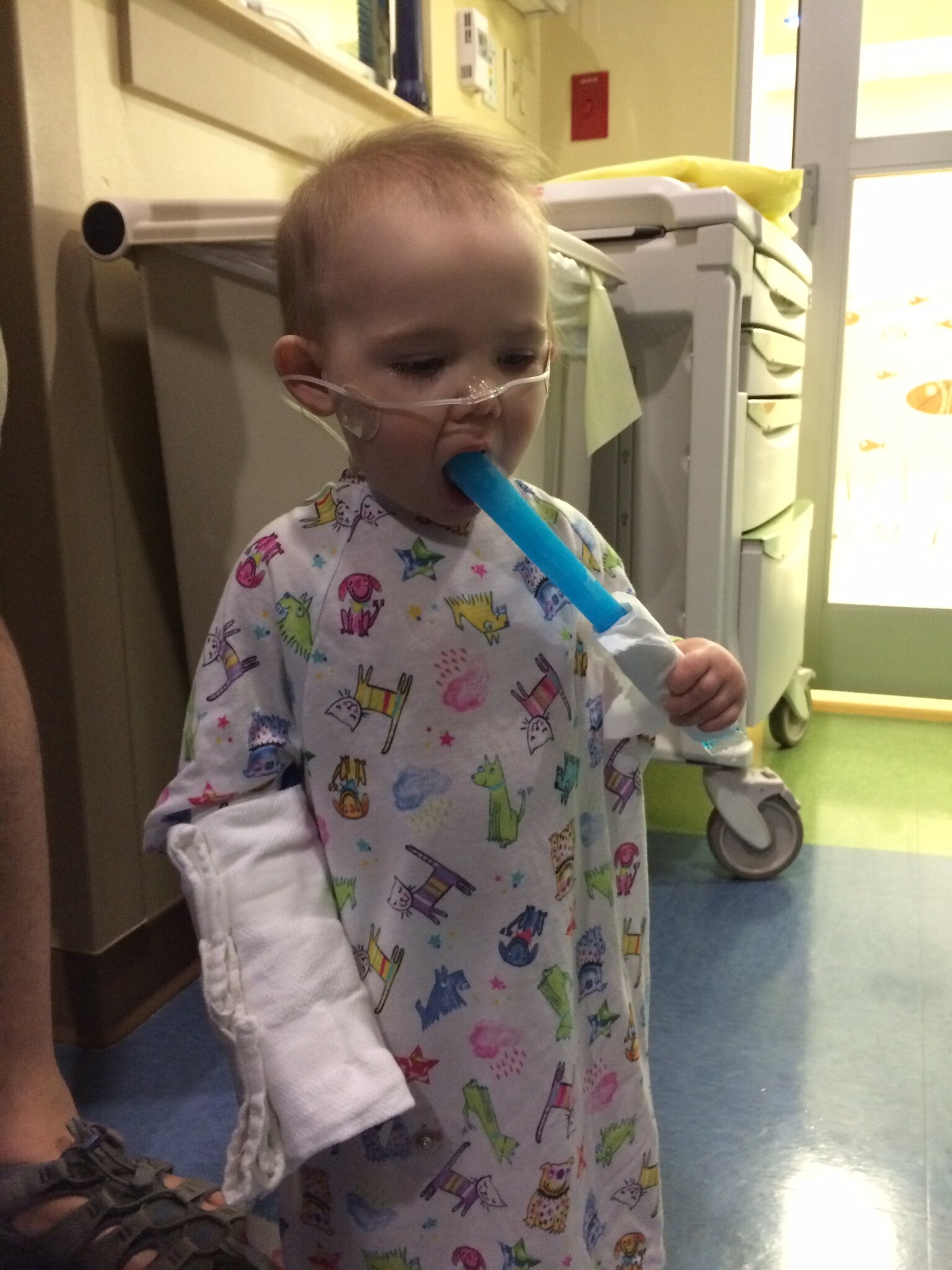
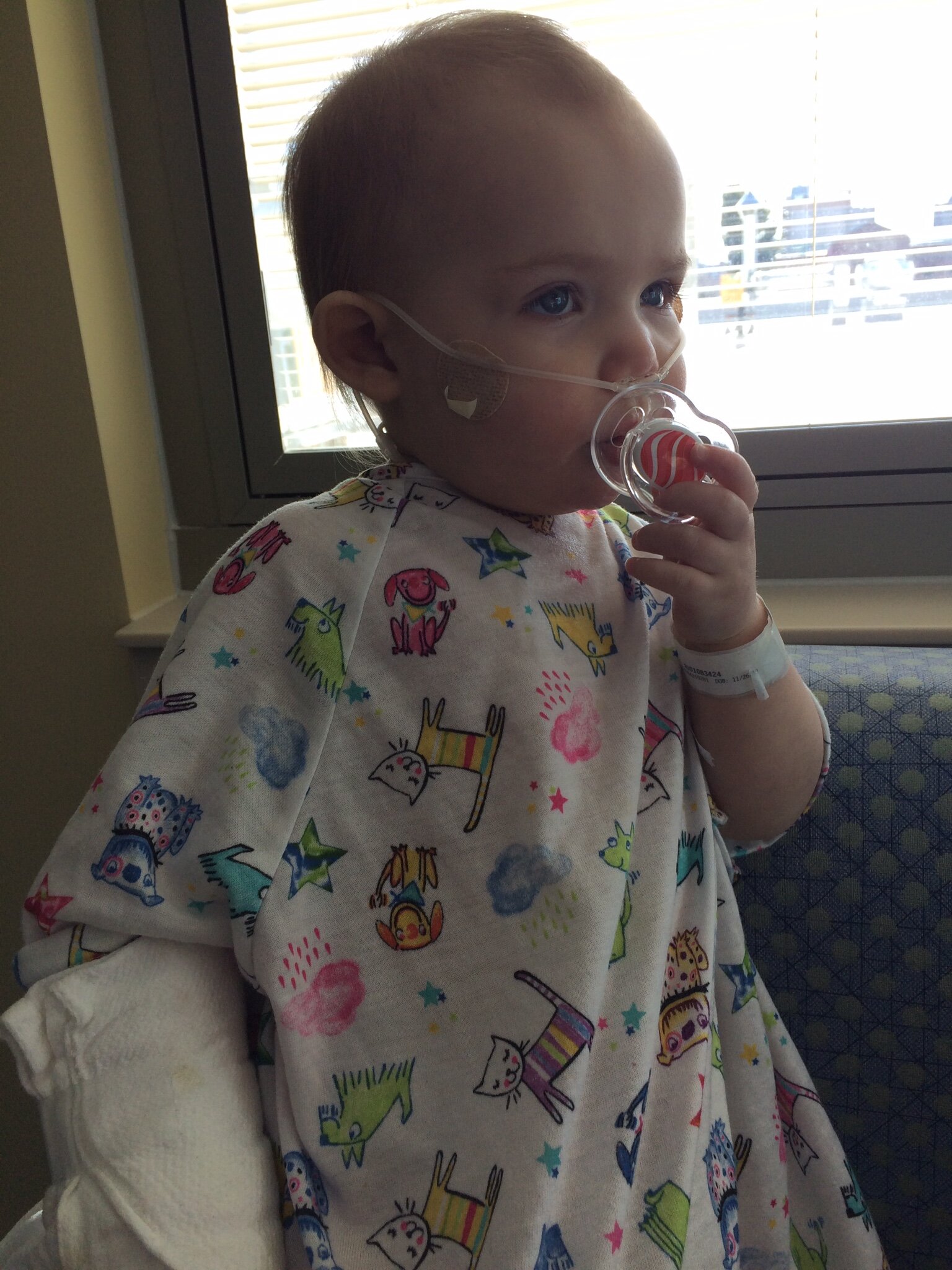
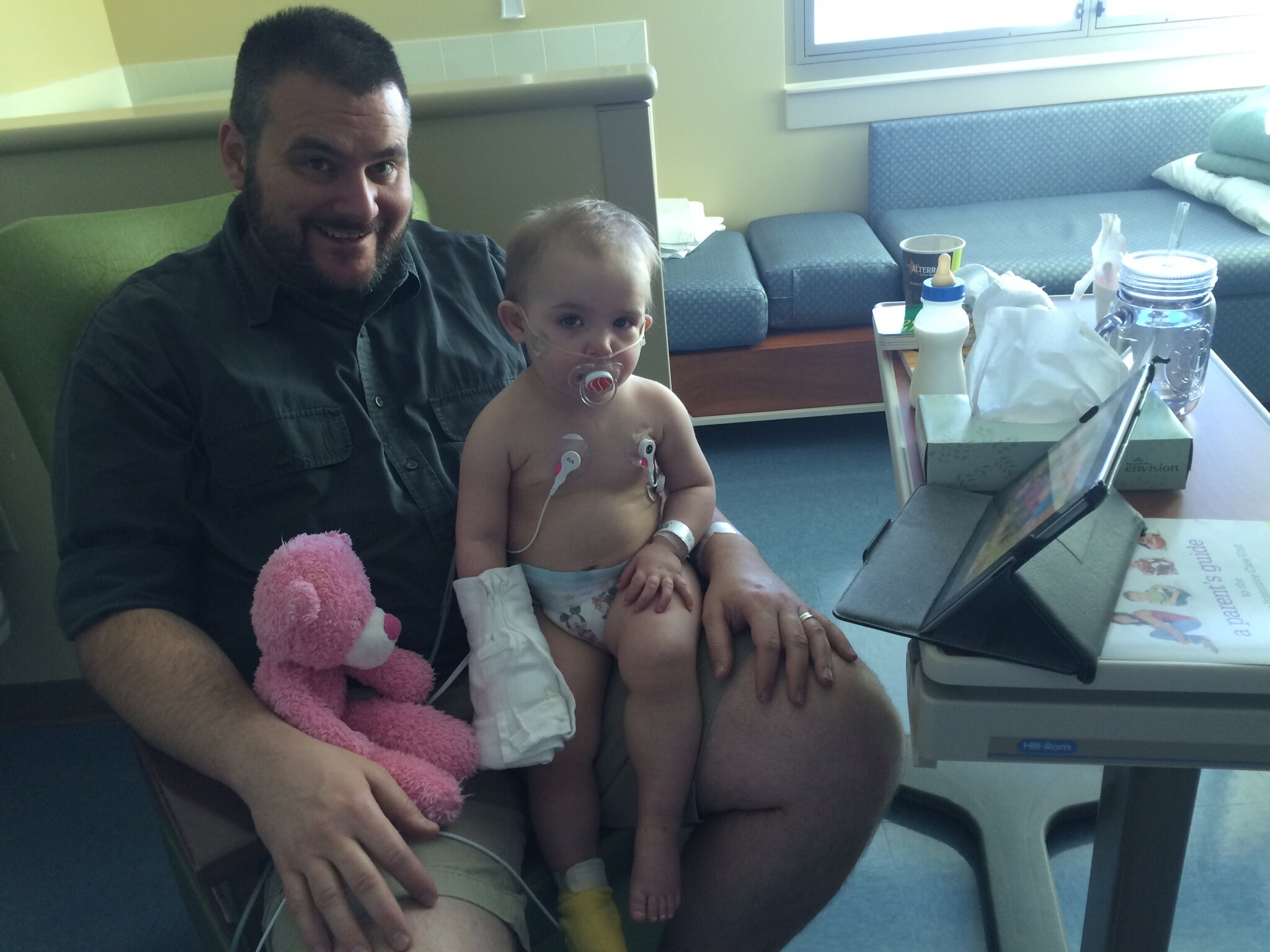
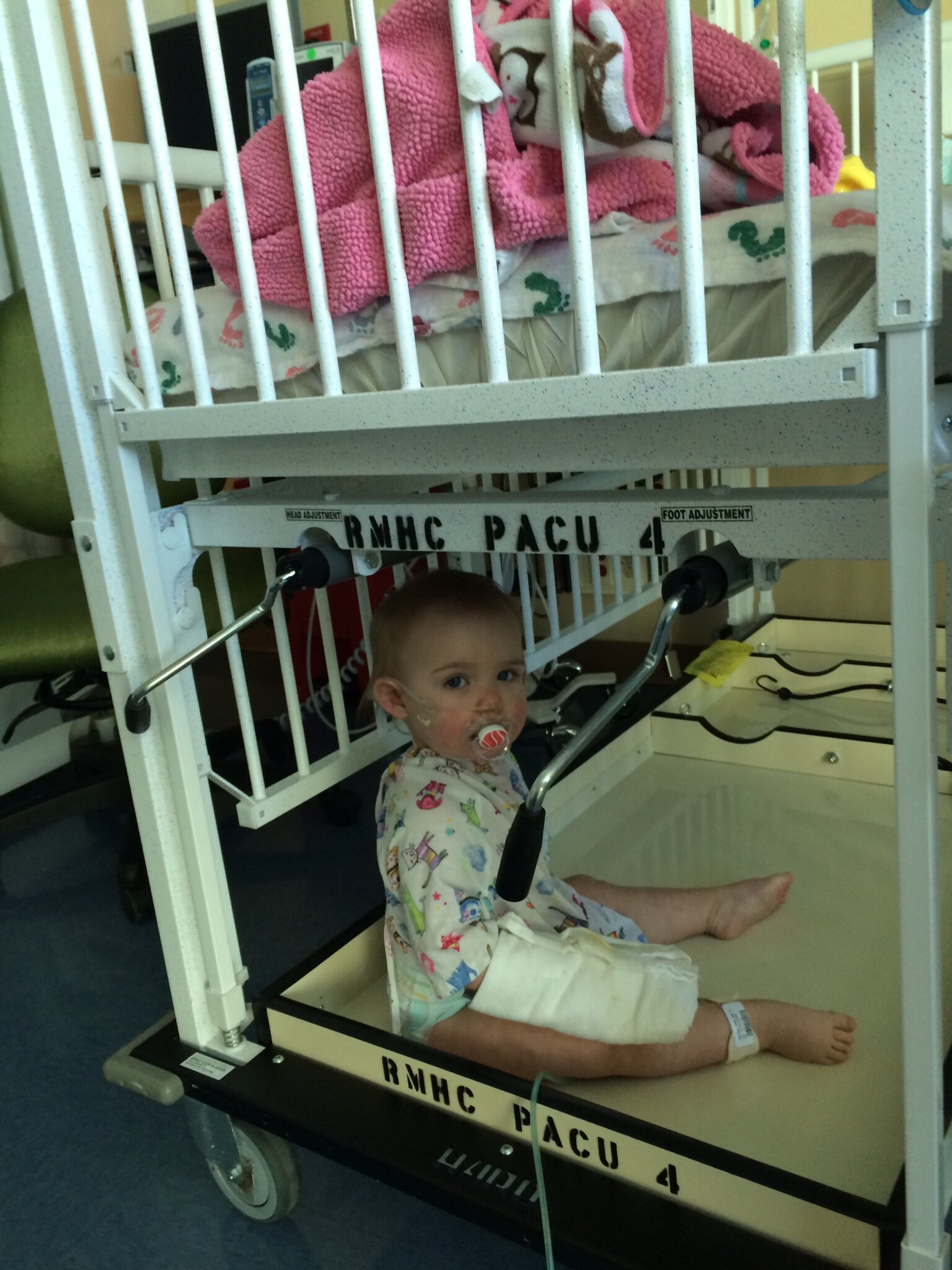
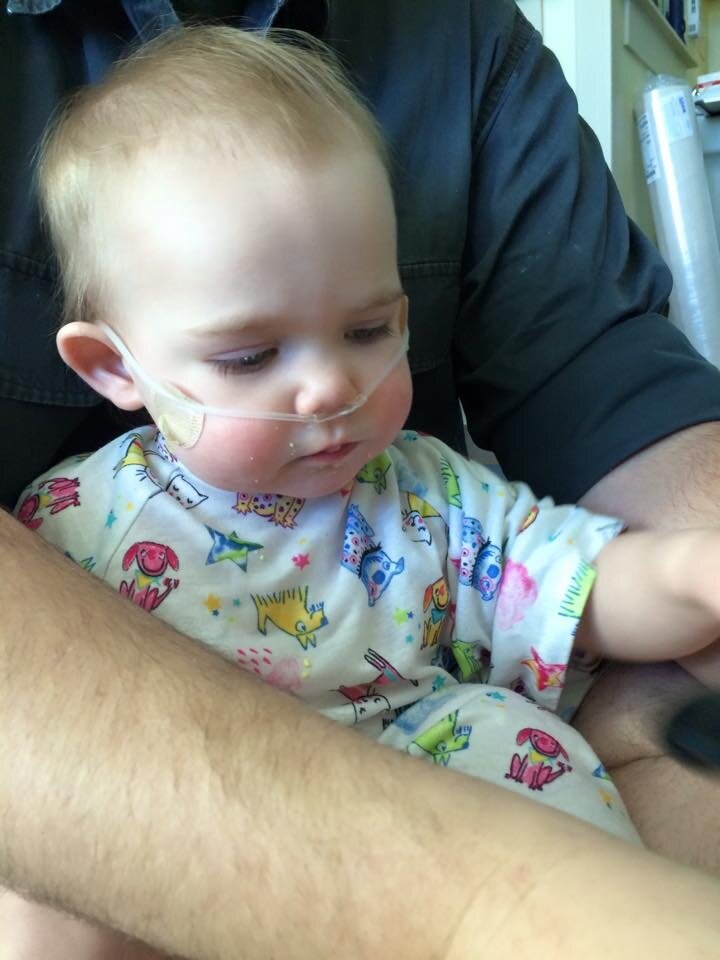
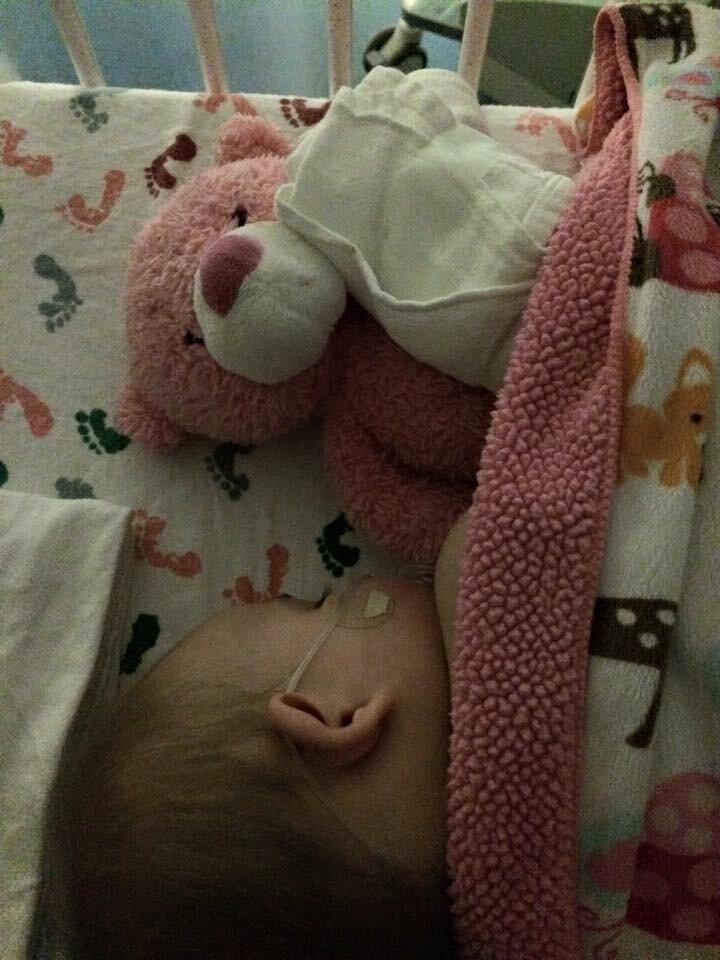
So there I was, 6 pm, and I just knew. I knew she needed to go to the hospital. My husband was on a business call. I remember telling him, “We have to go - we have to go now”, and interrupting his call. He was surprised but didn’t argue. I remember quickly loading into the car and telling him to drive faster - run the red light - you need to go faster.
We walked into the ED, and I felt burdened with a huge sense of fear and uncertainty. This was my daughter, in the hospital I work at. I knew the nurses and doctors and processes and procedures that were coming next. I knew when her oxygen levels were in the 70s and they kept giving her more oxygen that they were providing good care. I knew she was in a safe place with good doctors and yet I was still scared. I was still scared. Even with my knowledge and experience, the countless number of children I had admitted to the hospital with RSV, and the confidence that she was in a good place - I was still scared.
She got admitted to the Pediatric ICU, and the doctor who was on call was a colleague. I respected him. I immediately felt safer. Just having that friendly face and knowing he was a good doctor gave me comfort that she would be alright. She stayed in the hospital for 3 days, was discharged home on oxygen for a few more days, and recovered without difficulty.
Our next visit to the ER and hospital stay was just two weeks ago, January 2020. My son was looking much the same as my daughter looked back in 2015. I knew something was wrong. The girls were already asleep, so my husband stayed at home while I took him to the ER.
Not flu. Not RSV. But some other virus was causing him to have difficulty breathing and he too needed oxygen. We got admitted to the hospital for oxygen and IV fluids. Having survived the hospital stay with my first child, I knew more of what to expect and how to prepare when I was taking my little man to the ER. I wasn’t as scared this time as I was the first time I had to navigate having my child in the hospital. Nevertheless, I still felt an immediate sense of calm when the doctor walked in and I knew we were in good hands.

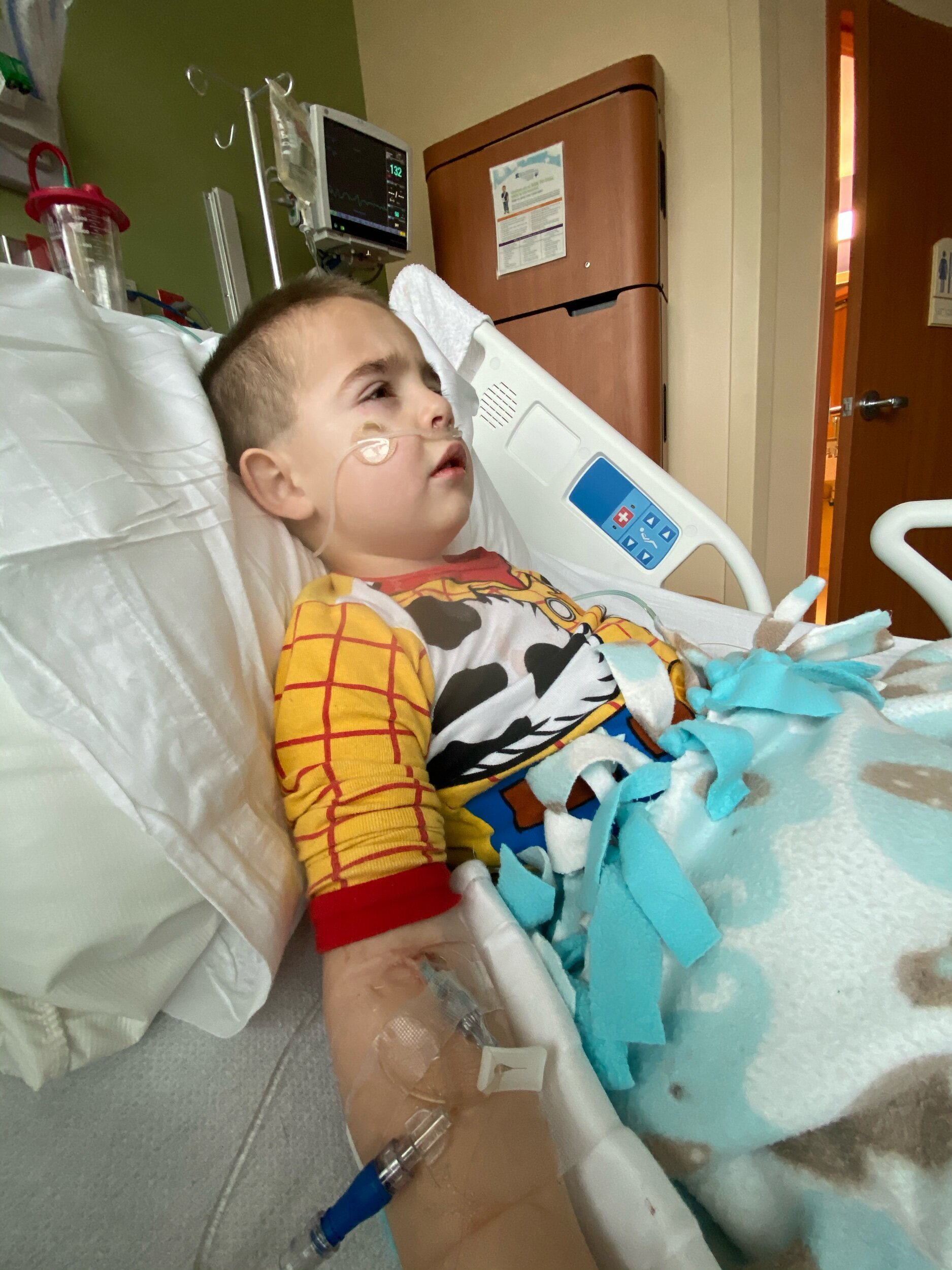
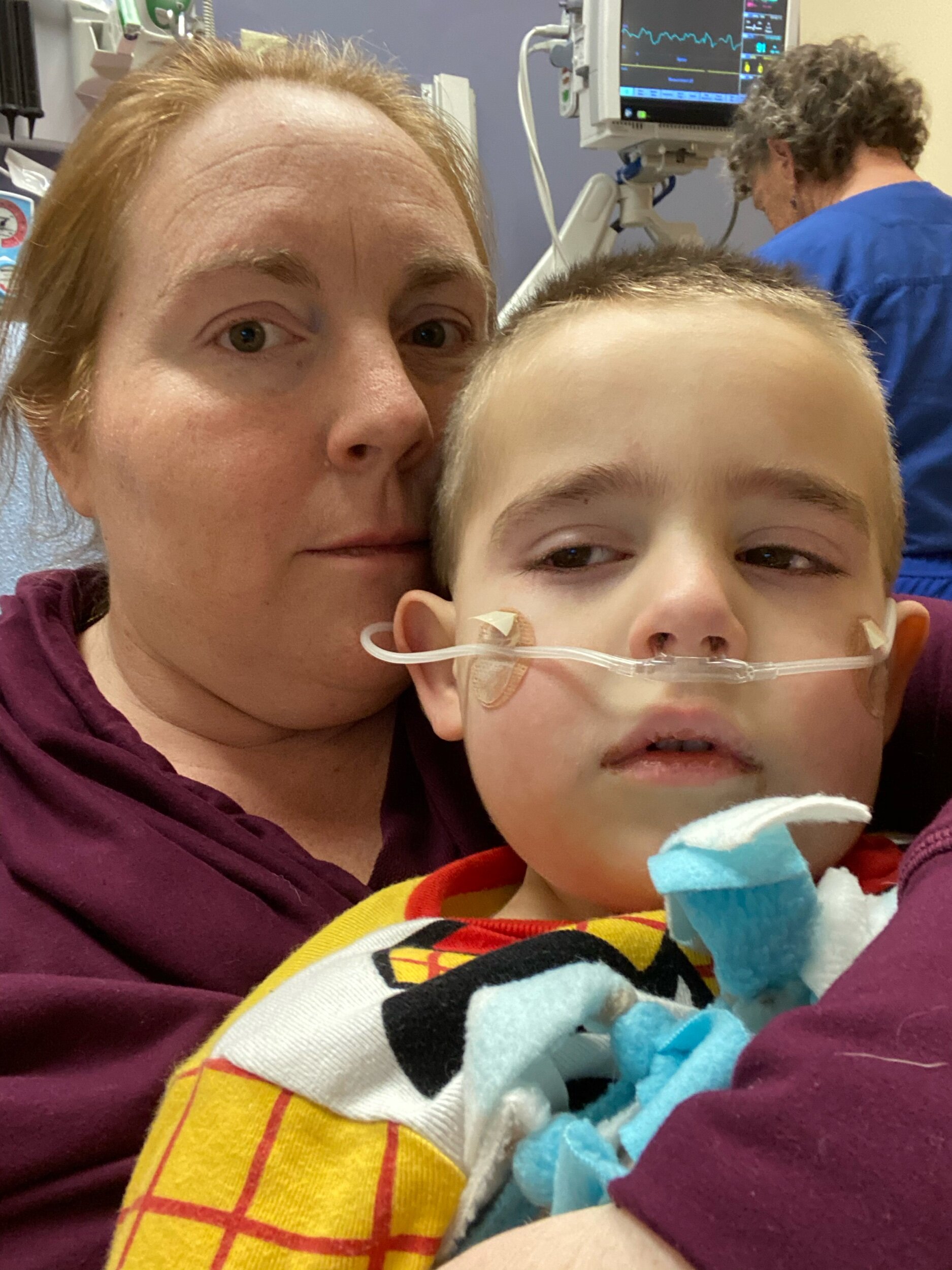
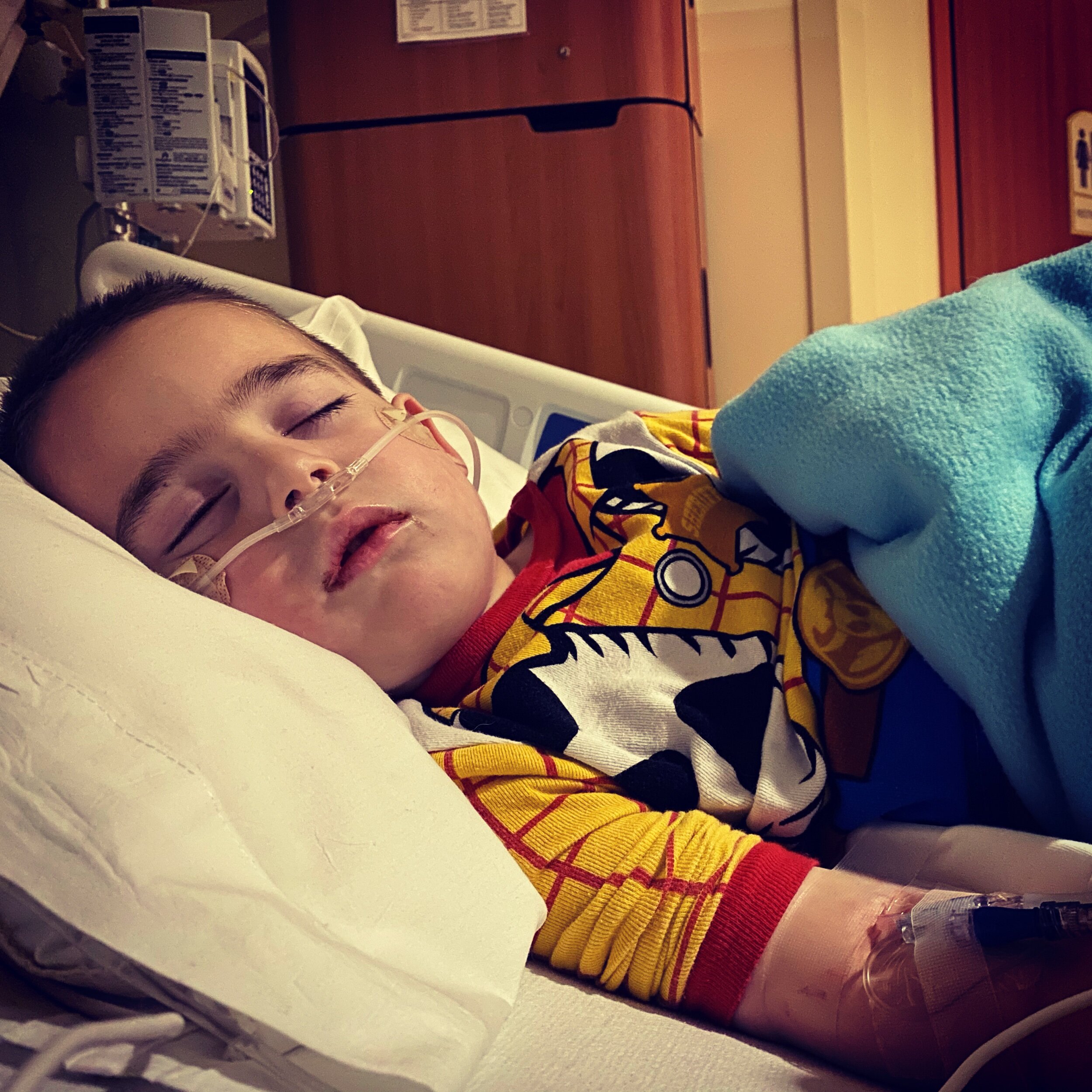
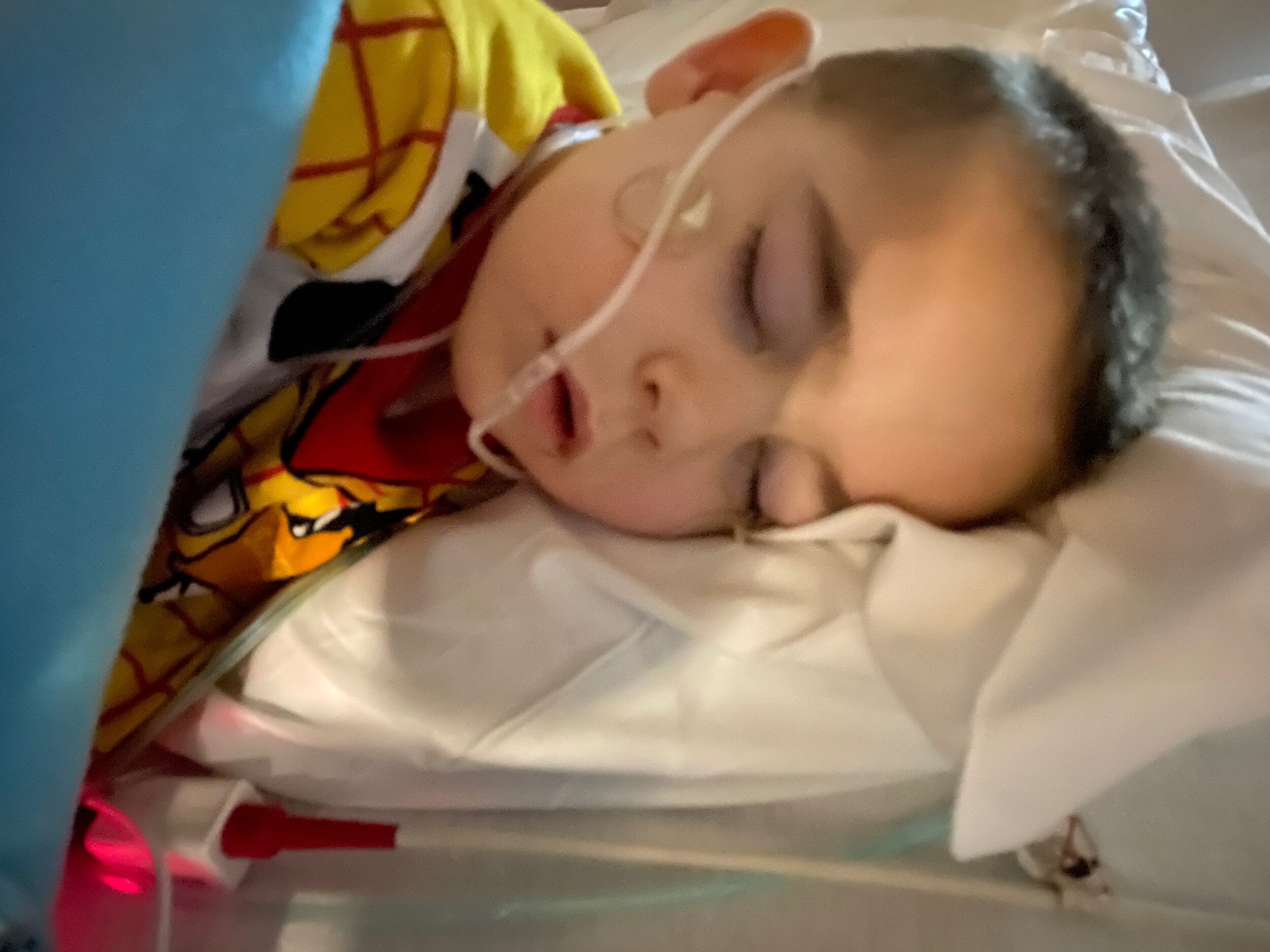
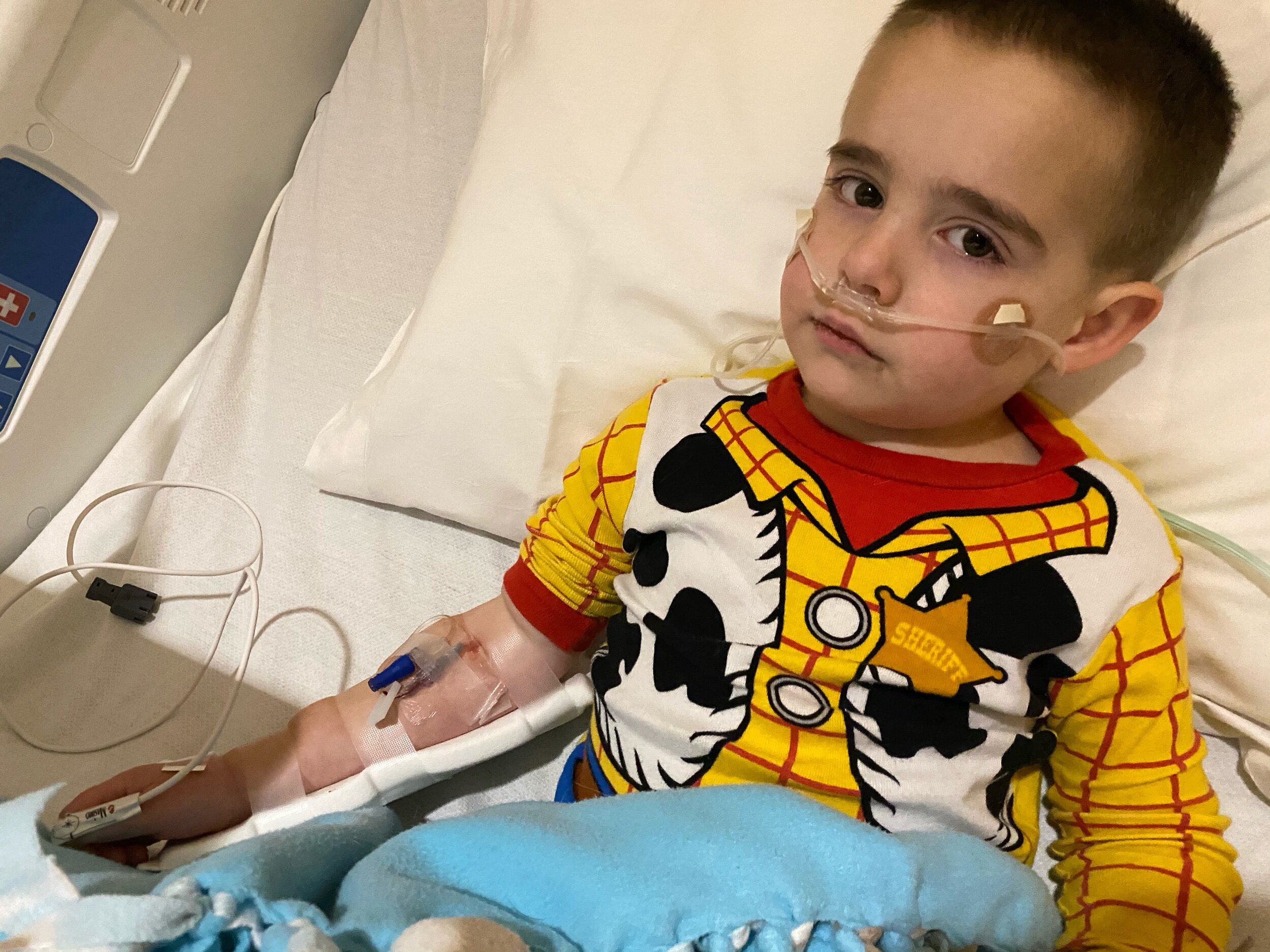
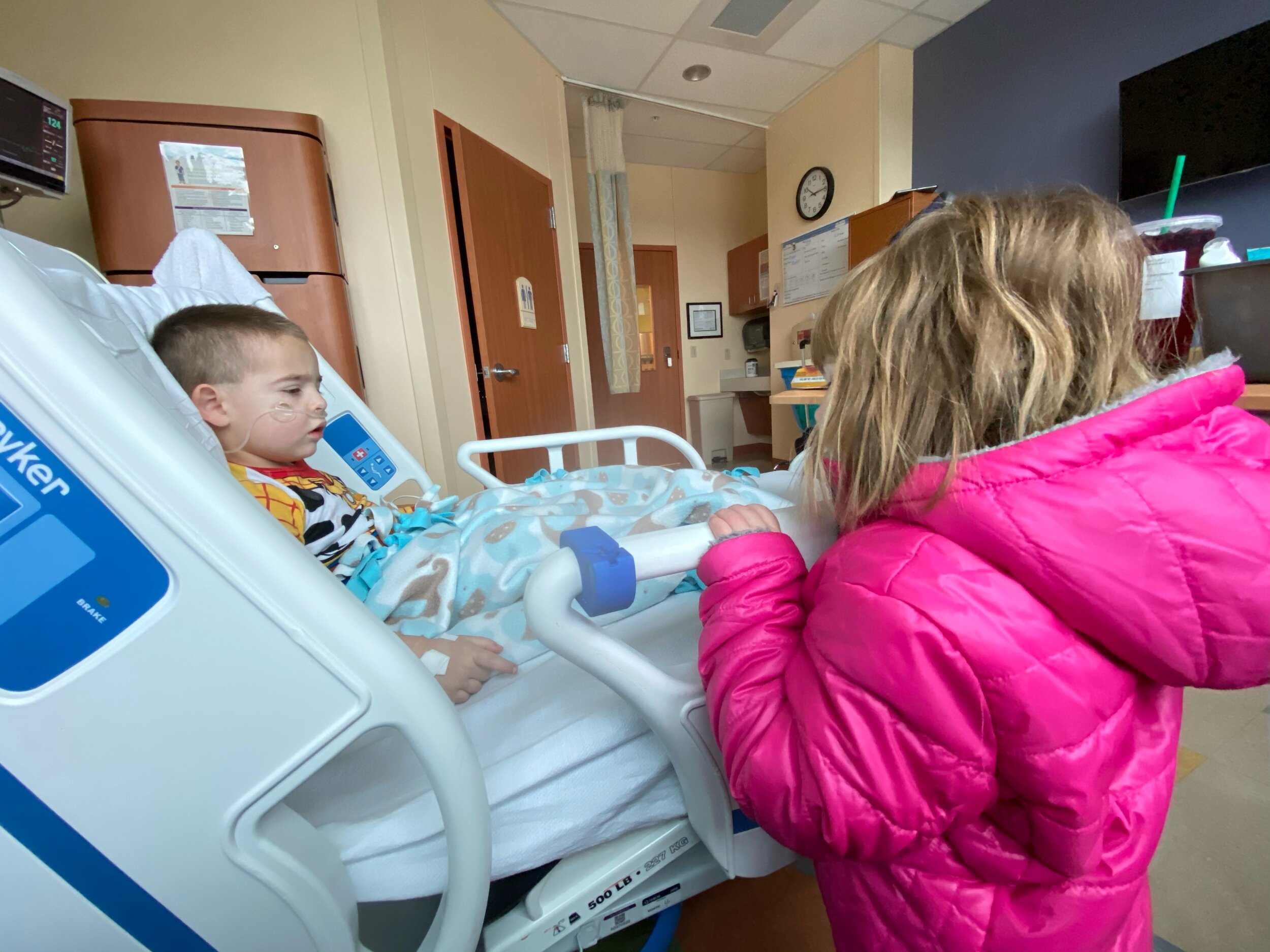
So what is the point? Why do I tell this story?
When you have a child in the hospital, several things can make mom life easier, and less stressful. So here are my top tips for surviving a hospital stay with your little ones.
Try to find a familiar face. For children who were in the NICU or who have medical problems that require more than one hospital stay, it provides huge comfort to see a familiar face. This could be a nurse or doctor who took care of your child previously or a friend who works in the hospital. I know this is not possible for all admissions and all families, but I can not underscore how seeing someone I knew put me at ease.
It helps to know what to expect. If you are headed to the Emergency Room, know that they triage patients and bring the sickest kids back first. You aren’t going to get immediate answers or plans. Expect to tell the story of your child and their illness multiple times - the triage nurse, the ER nurse, the ER doctor. They all want and need to hear the story. Expect to “hurry up and wait” - get a test, wait for the result. Try some oxygen - wait to see if your child responds. Be patient and know that the doctors and nurses are trying to get you answers and a plan as quickly as possible without misleading you by jumping to conclusions. And if your child is admitted to the hospital, be prepared to tell the story again to the nurses and doctors on the hospital unit.
It is hard to get sleep in a hospital, both for you and for your sick child. Monitors dinging constantly. IV pumps beeping nonstop. Nurses and doctors coming in at all hours of the day and night to check on you and your little one. But there are some things that can help you get some rest. Bring your own pillow to use on the hospital couch - it will be so much more comfortable. Hospital pillows are plastic, flat and uncomfortable, trust me! Wear your most comfortable clothes and a pair of shoes that slip on and off easily. And sleep when your child sleeps - it is so important for moms to get rest so they can help care for their child when they are awake.
Bring something to entertain yourself. Bring your cell phone or iPad (don’t forget a charger) to watch movies, read books or catch up on the news. Bring books or magazines that can help keep you occupied and give you something other than the hospital beeps to focus on.
Ask for a takeout menu. Hospital food is manageable for a day or so, but after that, you need a takeout menu. In every unit I have been at, the nurses know what the best local options are for delivery; ask the nurses where to get good food! Along the same line, bring a water bottle so you can stay hydrated and refill it on the unit.
Know how to say “yes”. For some reason, it is hard to accept help, and even harder to ask for help. When your child is in the hospital, whenever someone offers to help, you need to say yes. If someone offers to come sit with your child for a hour so you can go home and shower or take a walk around the block, say yes. When someone offers to bring you dinner, say yes. When a friend offers to bring you coffee or your caffeine of choice, say yes. When a friend or neighbor offers to watch your other kids (or feed your other kids, or do carpool for your other kids), say yes. If the hospital offers you toiletries, accept them. Just say yes. (As my husband was reading this blog before I posted it, he laughed, because saying yes and accepting help is impossible for me!)
Ask for clarification and advocate for your child. As a parent, you should always understand what is happening with your child. If you don’t understand a lab result or procedure, ask for clarification. If you are unclear about what the plan of care is going to be moving forward, ask for clarification. Take notes, write down questions to ask the care team and be an advocate for your child. After all, you know your child better than anyone else.
Take it one day at a time. I find this to be the easiest advice to give, yet the hardest to really live. Each day will have ups and downs, positives and negatives. By focusing on what is going right instead of dreading what might go wrong, you can keep yourself in a more positive space. This will help you with your own mental health and improve your interactions with those around you (family, friends, hospital staff, etc). And remember that babies and children don't always follow the plan! Sometimes they need to stay longer or get to leave earlier than expected, so try to stay flexible.
Hospital stays are scary, exhausting and stressful, but with a little patience and knowledge, you can make it better for yourself as a mom. While you are focused on the health of your child, it is good to take care of yourself as well. After all, your child is a MightyLittle.
